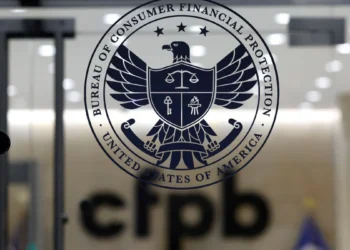The Reserve Bank of India (RBI) has not been shy about voicing its concerns over cryptocurrencies, boldly claiming that “crypto poses risks to India’s financial stability.” This might sound dramatic, but it reveals the central bank’s apprehensions over how digital assets could shake up the country’s financial ecosystem.
India’s crypto market is booming like never before. Millions of people and businesses are embracing crypto for trading, investing, and even everyday uses. The surge in activity has propelled India to the top of the global crypto adoption leaderboard for 2024, outpacing powerhouses like Nigeria, Indonesia, and even the United States, according to data from Chainalysis.
But with great growth comes great scrutiny. Are the RBI’s warnings about crypto’s risks truly justified, or are they a case of fear of the unknown (or even an attempt to slow down the unstoppable)? Let’s dig deeper and examine both the challenges and the untapped opportunities that crypto brings to the table in India.
RBI’s Concerns: Breaking Down the Risks
In its December 2024 Financial Stability Report, the RBI sounded the alarm on the unchecked use of digital assets, claiming they could have far-reaching consequences for India’s economy.
One of the central bank’s primary concerns is that cryptocurrencies could undermine India’s monetary sovereignty and also catalyze capital flight. With crypto-related revenues projected to reach $387.7 million in 2025 and $467.2 million by 2028 at a steady annual growth rate of 6.41%, the RBI fears this expanding sector could weaken its control over the monetary system.
Stablecoins, in particular, have come under fire, with RBI Governor Shaktikanta Das labelling them “private money” that could erode governmental control over payment systems.
Another concern the bank raised is the rising trend of tokenization. In 2024, India’s tokenization market generated a revenue of $113.6 million and is projected to reach USD 477.3 million by 2030.
While this innovation blurs the boundaries between traditional finance and decentralized systems, the RBI is particularly concerned about its risks, which include liquidity mismatches, excessive debt, and volatility. The bank claims the fallout of these events quickly spill over into the broader financial system, amplifying systemic risks and putting the stability of the entire economy at risk.
Why RBI’s Concerns May Be Overstated
While the RBI’s apprehensions hold some merit, they may be somewhat exaggerated. The rapid growth of India’s crypto market suggests that the risks are neither as imminent nor as disruptive as the central bank thinks it is.
First and foremost, India’s crypto market, although growing, is still relatively small compared to traditional financial markets. The Indian crypto market was valued at $2.6 billion in 2024 and is projected to grow to $13.9 billion by 2033, with an annual growth rate of 18.48%, according to the IMARC Group. To put this in perspective, India’s stock market capitalization was around $4.6 trillion in April 2024 and is projected to reach $40 trillion over the next 20 years.
Even the RBI acknowledged that, while the sector has seen massive adoption, it remains far from a systemically important part of India’s economy. This means that while cryptocurrencies are becoming more popular, they have yet to reach a level where their failure or volatility would trigger a full-blown crisis or widespread economic disruption.
Also, many risks cited by the RBI, like capital flight and monetary policy disruption, have not materialized significantly. Crypto adoption in India is retail-driven, with individual traders and businesses experimenting with digital assets, not large-scale capital outflows.
India’s robust foreign exchange reserves, standing at $640 billion as of late 2024, offer a strong buffer against potential economic shocks, including those linked to cryptocurrency market fluctuations.
Furthermore, the perceived risks associated with tokenization and DeFi can be mitigated through regulatory measures that balance innovation with investor protection. For instance, stablecoins could provide a low-cost, secure alternative to traditional banking for cross-border remittances—a significant advantage in a country with a large diaspora. Similarly, tokenization can democratize asset ownership, enabling fractional ownership of high-value assets like real estate while increasing transparency and efficiency.
Why Regulation is Key to India’s Path to Safe Crypto Innovation
The RBI’s concerns emerge at a time when India’s crypto market operates in a regulatory limbo. The absence of a clear framework leaves the sector in uncertainty, further compounded by the country’s harsh tax regime. A 30% capital gains tax on crypto profits and a 1% Tax Deducted at Source (TDS) on transactions have driven many Indian traders to offshore platforms, resulting in potential revenue losses for both the government and local businesses.
READ MORE: Why is Crypto Thriving in India Despite Discouraging Tax Regime?
Prime Minister Narendra Modi recently called for a global framework to regulate cryptocurrencies, signalling the government’s acknowledgement of the need for comprehensive rules. While pursuing international consensus, India must also act domestically to provide clear guidelines.
A well-defined regulatory framework can address concerns about capital flight, monetary policy disruptions, and financial instability while fostering innovation. Effective regulations would encourage crypto activity within India’s formal economy, reducing reliance on unregulated offshore exchanges. This shift could boost tax revenue, create a safer environment for investors, and solidify India’s position as a leader in digital finance.
In conclusion, the RBI’s focus should shift toward developing a regulatory structure that embraces crypto’s potential while managing its risks. By doing so, India can leverage its booming crypto market to drive economic growth and establish itself as a global hub for digital finance innovation.
Disclaimer: This article is intended solely for informational purposes and should not be considered trading or investment advice. Nothing herein should be construed as financial, legal, or tax advice. Trading or investing in cryptocurrencies carries a considerable risk of financial loss. Always conduct due diligence.
If you would like to read more analyses like this, visit DeFi Planet and follow us on Twitter, LinkedIn, Facebook, Instagram, and CoinMarketCap Community.
Take control of your crypto portfolio with MARKETS PRO, DeFi Planet’s suite of analytics tools.”





















